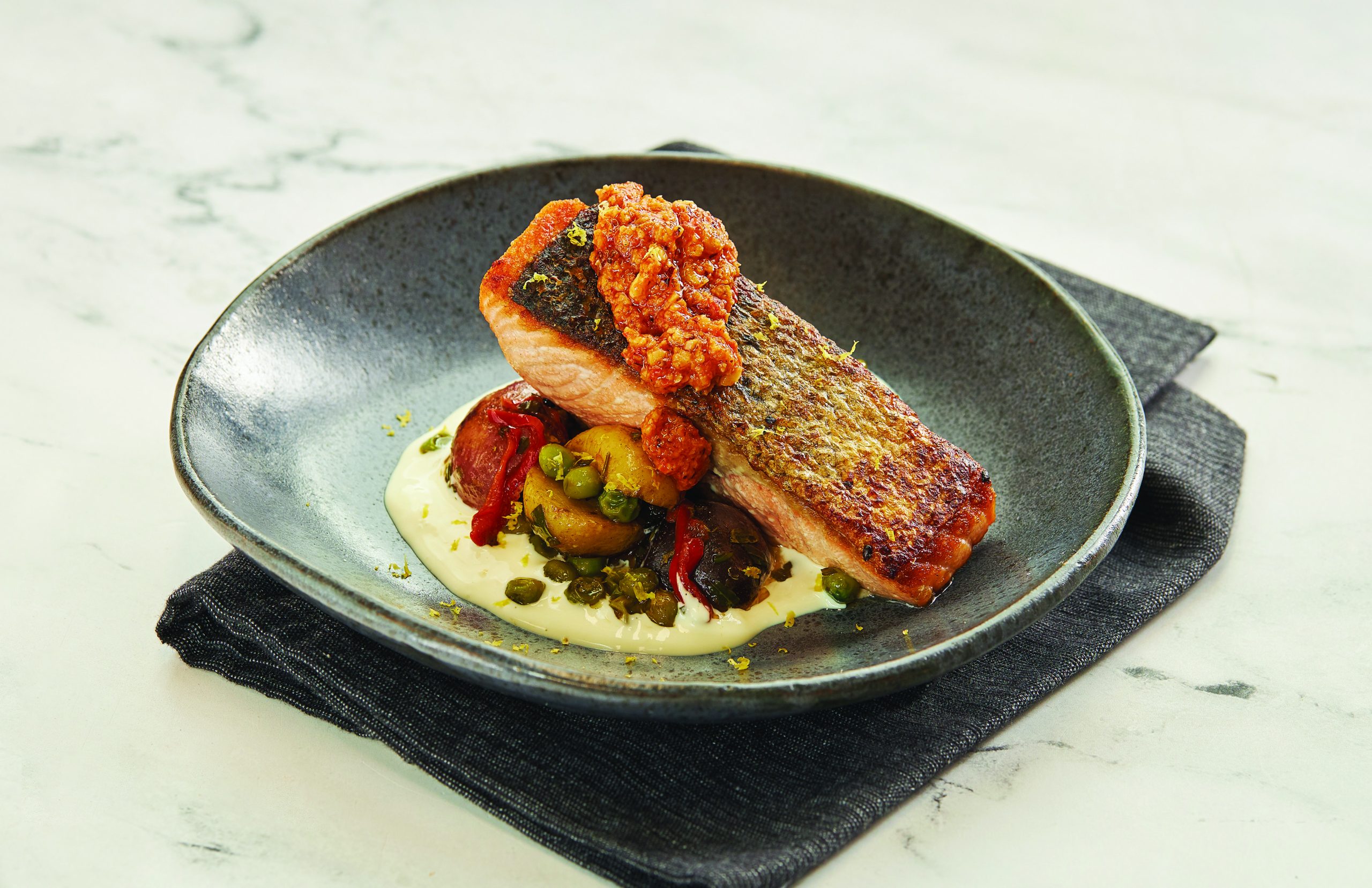
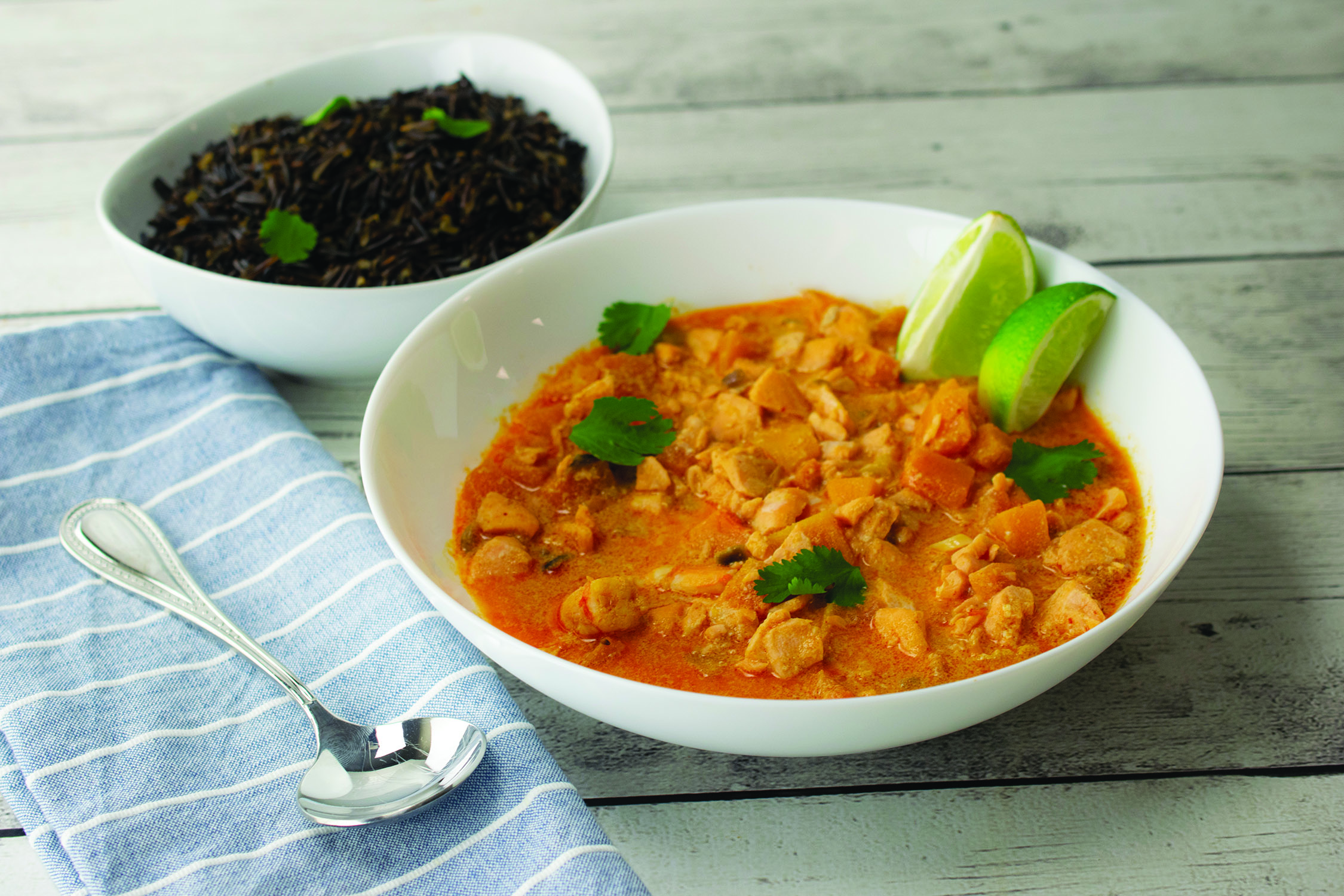
(Family Features) Whether you’re celebrating a weekend meal with loved ones or simply looking for a way to bring your family to the table at the same time, seafood night can make dinnertime a special treat. Next time you plan to make fish the focus of your menu, it’s possible you’ll be enjoying the benefits of aquaculture, also known as seafood farming.
Fast becoming a leading source of seafood worldwide, aquaculture is similar to typical agriculture but with fish, shellfish and seaweeds. Farmed seafood can be raised and harvested in either fresh or seawater, where natural conditions are recreated.
Today, half of all seafood Americans eat annually is farm raised and the appetite is only growing. There are many reasons for this, but one is due to overfishing and destructive practices. About 33% of wild fish stocks have reached their biological limit and aquaculture helps meet the increasing demand for seafood.
However, not all seafood you find in the grocery aisles is the same. Despite industry advances, aquaculture still faces challenges with fraud, mislabeling and questionable conditions. That’s why it’s important to look for responsible seafood products that are labeled by a trusted certification process.
For example, the Aquaculture Stewardship Council is a non-profit certification program that has created and enforced the world’s strictest and highest standards for seafood farming since 2010. Today, it is transforming the seafood industry with a new level of certification for farmed seafood. This “new way to seafood” includes:
* Seafood that can be traced all the way from the farm to the store, ensuring the seafood you buy is what it claims to be
* The strictest combination of requirements to protect the environment, workers and communities on the farms where seafood is raised
* Improving farmed seafood quality and safety, so you can enjoy the flavor of recipes like One-Pan Japanese Salmon with Sweet Potato, Salmon and Shrimp Coconut Curry and Royal Salmon with Romesco Sauce and Aioli
To find more information about the certification process, visit NewWaytoSeafood.com.
Royal Salmon with Romesco Sauce and Aioli
Recipe courtesy of MOWI on behalf of the Aquaculture Stewardship Council
Servings: 2
2 tablespoons olive oil, divided
2 Atlantic Salmon MOWI Royal portions
salt, to taste
pepper, to taste
1 red pepper, cut into long strips
2 cups small potatoes, cooked and cut in half
1 teaspoon paprika
1/2 teaspoon cayenne pepper
1/2 cup garden peas
1 tablespoon chopped tarragon
Romesco Sauce:
1/2 cup extra-virgin olive oil
2 cloves garlic, smashed
1/4 cup slivered almonds, toasted
1/4 cup hazelnuts
1 slice white bread, crust removed
1 large roasted red pepper
1/4 cup tomato puree
1 teaspoon sherry vinegar
salt
black pepper
Aioli Sauce:
1 cup mayonnaise
1-2 cloves garlic, crushed
1 tablespoon olive oil
1 lemon, zest and juice
salt
white pepper
lemon wedges, for garnish
Preheat oven to 400 F.
Place large skillet over medium-high heat and add 1 tablespoon olive oil. Season salmon portions with salt and pepper, to taste, and place skin sides down in pan. Cook 2-3 minutes until skin is crispy. Place on sheet pan, skin sides up, and bake 6-7 minutes. Remove from oven and let rest.
In same skillet, add remaining olive oil then add peppers and potatoes. Cook 6-7 minutes until peppers soften and potatoes start to caramelize.
Add paprika, cayenne and peas; stir and cook 2 minutes. Add tarragon.
To make romesco sauce: In clean pan, heat olive oil and gently fry garlic, nuts and bread until toasted.
In blender, process red pepper, tomato puree and vinegar until smooth. Add toasted nuts and bread; process to desired consistency.
To make aioli: In bowl, whisk mayonnaise, garlic, olive oil, lemon zest and juice, salt and pepper.
Place several spoonfuls of aioli on plate. Top with potatoes, peppers and salmon, skin side up. Top with romesco sauce.
Salmon and Shrimp Coconut Curry
Recipe courtesy of MOWI on behalf of the Aquaculture Stewardship Council
Servings: 2
2 pieces of MOWI Pure portions salmon
1 cup wild rice
1 tablespoon coconut oil
1 clove garlic, sliced
1/4 cup red onion, diced
1 cup pumpkin or butternut squash, diced
1 tablespoon lemongrass, finely chopped
1 1/2 tablespoons red curry paste
1/2 cup coconut milk
1 tablespoon fish sauce
1/4 cup tomatoes
4 shrimp
1 lime, quartered
2-3 cilantro leaves, for garnish
Cut salmon into 1/2-inch cubes. Cook rice according to package instructions.
In large skillet, heat coconut oil over medium-high heat. Add garlic, onion and pumpkin or squash; saute 5 minutes, or until onions are translucent. Mix in lemongrass and curry paste. Cook 2-3 minutes, or until fragrant.
Add coconut milk, fish sauce and tomatoes; mix thoroughly. Add shrimp and salmon; cook until done.
Serve with rice and lime quarters. Sprinkle with cilantro.
One-Pan Japanese Salmon with Sweet Potato
Servings: 2
Marinade:
1 tablespoon sesame oil
1/4 cup tamarind sauce
1/2 tablespoon Dijon mustard
2 tablespoons sesame seeds
1 tablespoon honey
1 sweet potato, cut into rounds
2 tablespoons coconut oil, divided
1 tablespoon sesame seeds
sea salt
8 spears broccolini
2 salmon fillets (4 ounces each)
brown rice, for serving
Preheat oven to 400 F. Line tray with baking paper.
To make marinade: In bowl, whisk sesame oil, tamarind sauce, Dijon mustard, sesame seeds and honey until combined.
Place sweet potato on baking tray and drizzle with 1 tablespoon coconut oil. Toss to coat. Sprinkle with sesame seeds and sea salt. Roast 25 minutes.
Remove tray from oven and add broccolini. Drizzle with remaining coconut oil and sea salt. Place salmon fillets in middle of tray and drizzle with marinade. Bake 12-15 minutes, or until cooked to desired doneness. Serve with brown rice.
#15931 Source: Aquaculture Stewardship Council
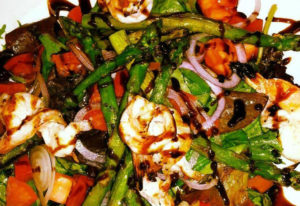
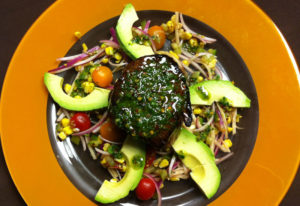

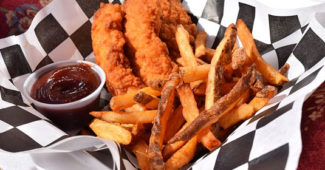
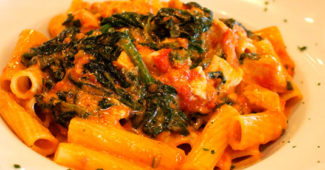
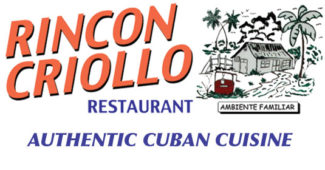


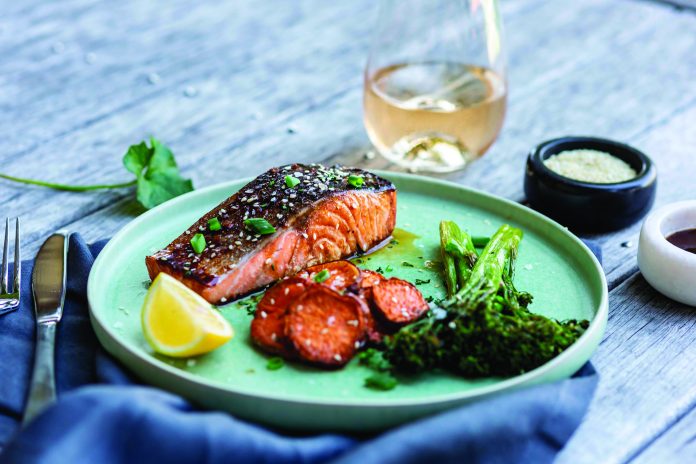



 20 lucky winners will win $500 each in prizes totaling $10,000.
20 lucky winners will win $500 each in prizes totaling $10,000. 